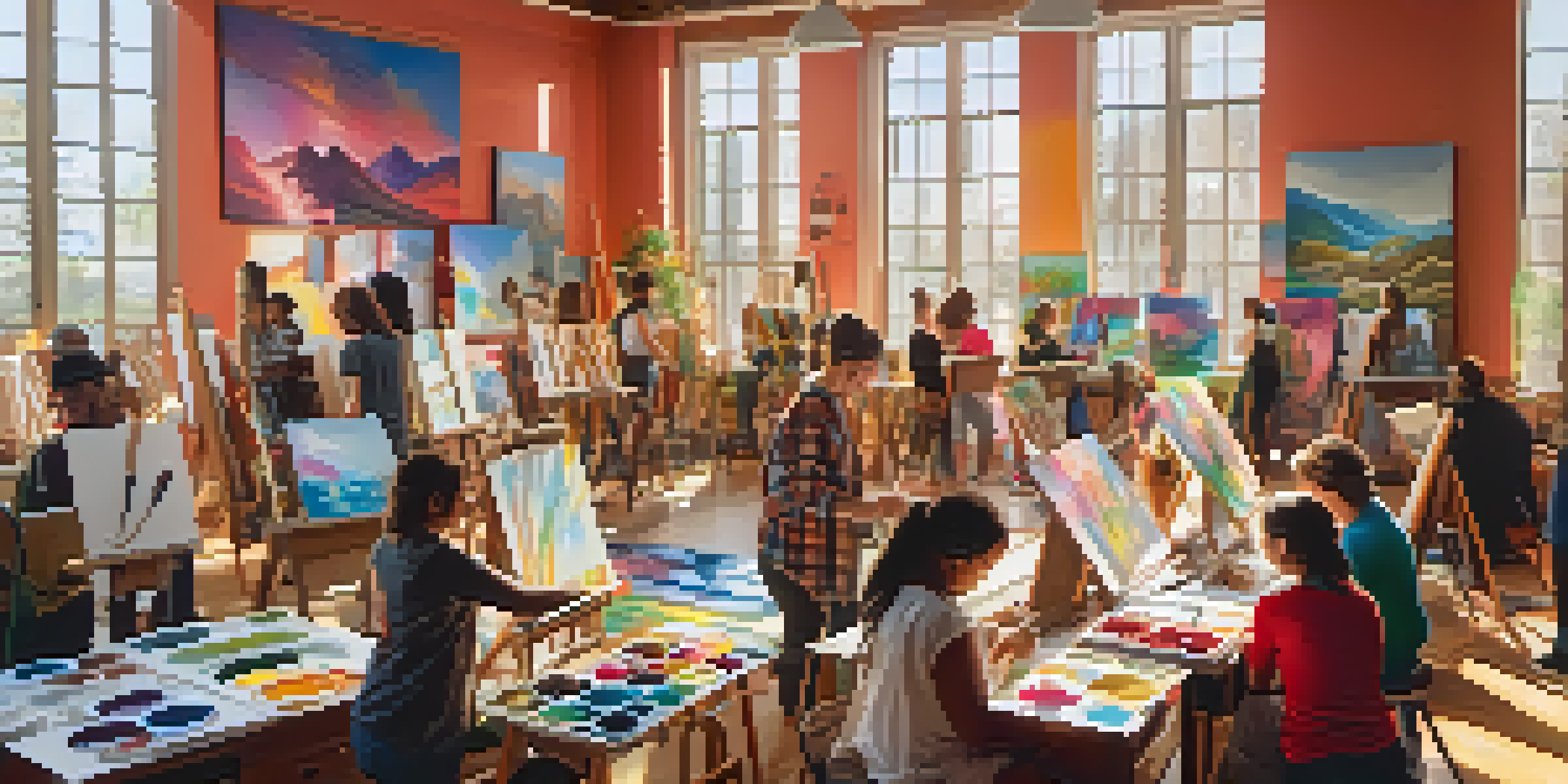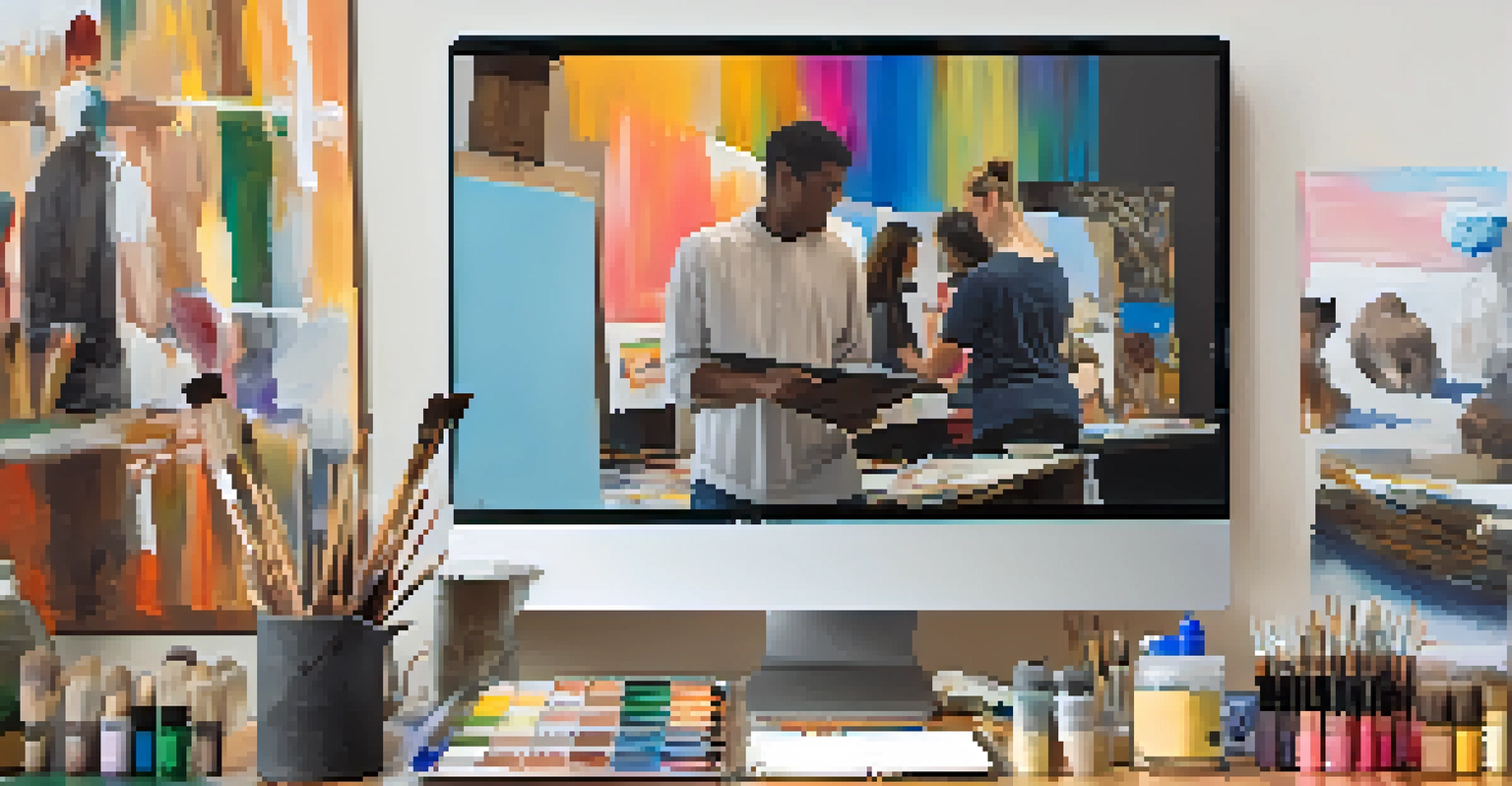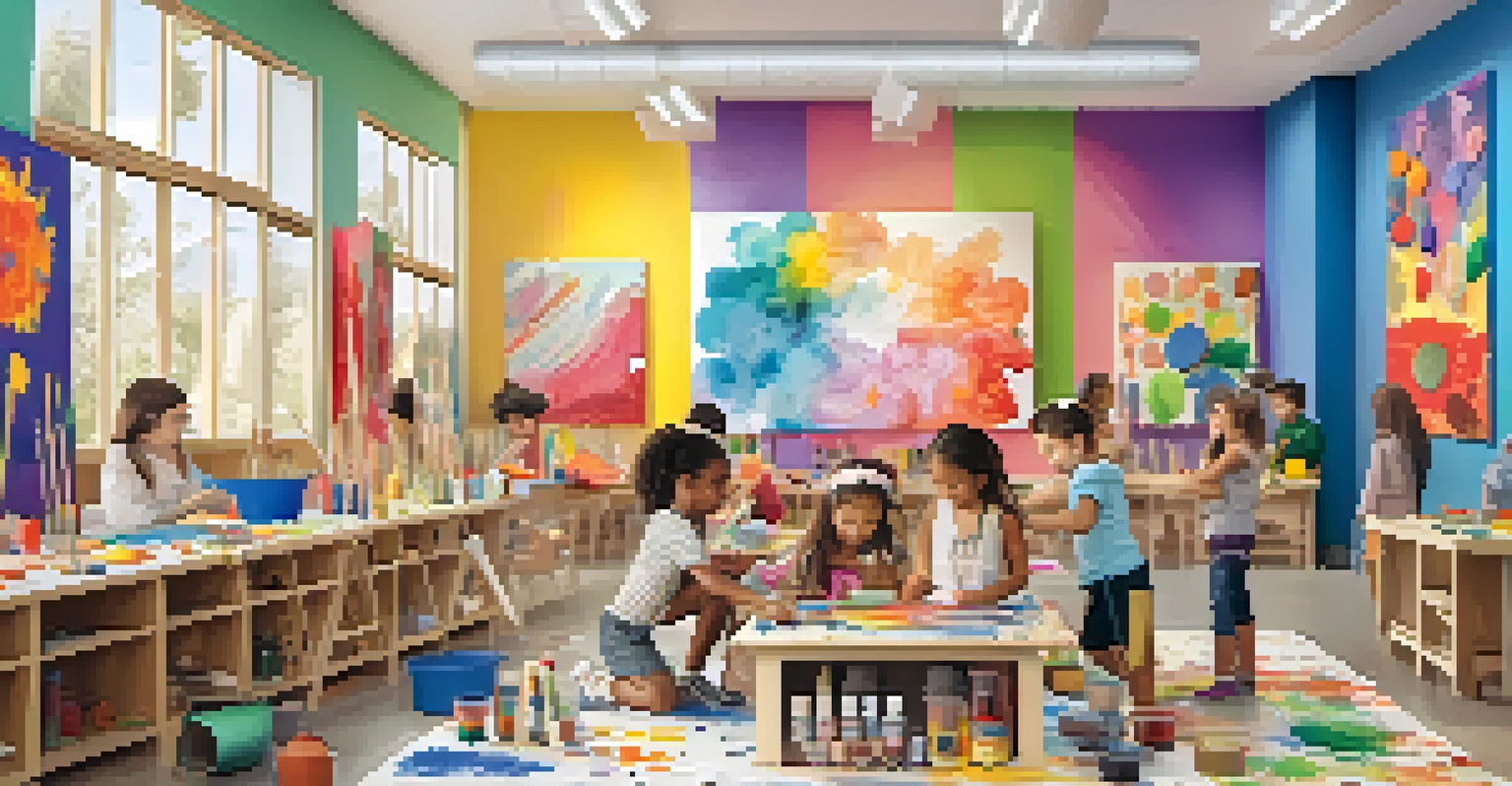Art Education: Workshops and Classes for Every Talent Level

The Importance of Art Education for Personal Growth
Art education plays a crucial role in personal development, allowing individuals to express themselves creatively. Engaging in artistic activities fosters critical thinking and problem-solving skills, which are valuable in many aspects of life. Whether you are a child or an adult, exploring art can provide a sense of accomplishment and boost self-esteem.
Every artist was first an amateur.
In addition to enhancing self-expression, art education also cultivates empathy and emotional intelligence. When you create or analyze art, you learn to see the world from different perspectives, which can deepen your understanding of others. This is particularly important in today’s diverse society, where appreciating different viewpoints is essential.
Moreover, participating in art education can lead to lifelong skills and hobbies. Many people who start with a simple paint class or pottery workshop find themselves developing a passion that can turn into a fulfilling pastime or even a career. This journey not only enriches personal lives but can also contribute to community engagement through shared artistic experiences.
Types of Art Workshops Available for All Levels
Art workshops come in various forms, catering to different interests and skill levels, from beginner to advanced. You can find classes in painting, drawing, ceramics, photography, and even digital art, ensuring there's something for everyone. These workshops often focus on hands-on learning, where participants can experiment with techniques and materials in a supportive environment.

Many community centers and art schools offer themed workshops that incorporate specific styles or techniques, like watercolor or abstract painting. These specialized classes allow participants to dive deeper into their chosen medium and develop their artistic voice. This focus not only enhances skills but also builds a sense of community among attendees.
Art Education Boosts Personal Growth
Engaging in art education fosters creativity, critical thinking, and emotional intelligence, enriching personal development.
For those seeking a more flexible approach, online art workshops are increasingly popular. They provide the convenience of learning from home while still connecting with instructors and fellow artists around the world. This option opens doors for individuals with busy schedules or those who live in areas with limited access to in-person classes.
Finding the Right Art Class for Your Skill Level
Choosing the right art class can feel daunting, especially with so many options available. A great starting point is to assess your current skill level and what you hope to achieve. Beginners may want to explore introductory courses that focus on basic techniques, while more experienced artists might seek advanced workshops that challenge their skills.
Art enables us to find ourselves and lose ourselves at the same time.
It's also helpful to consider your preferred art medium. If you’re passionate about painting, look for classes that specifically focus on that area. Alternatively, if you're curious about mixed media or sculpture, seek out workshops that encourage experimentation across different materials and methods.
Lastly, don’t hesitate to read reviews or ask for recommendations from fellow artists. Connecting with others in the art community can provide valuable insights into which classes resonate best with your interests and goals. Remember, art education is a journey, and finding the right fit can make all the difference.
Benefits of Group Art Classes vs. Private Lessons
Group art classes offer a collaborative environment where participants can share ideas and techniques. This interaction often leads to inspiration and camaraderie, creating a supportive atmosphere that encourages creativity. Many find that working alongside peers helps them to stay motivated and accountable in their artistic pursuits.
On the flip side, private lessons provide personalized attention tailored to individual needs and goals. This one-on-one approach allows for a customized learning experience, where an instructor can focus on specific skills or projects that interest the student. For those looking to hone particular techniques, private lessons can accelerate progress.
Variety of Art Workshops Available
Art workshops cater to all skill levels and interests, offering hands-on learning experiences in various mediums.
Ultimately, the choice between group classes and private lessons depends on your personal learning style and goals. Some may thrive in a social setting, while others prefer the focused guidance of a private instructor. Whichever path you choose, both options can lead to significant growth and enjoyment in your artistic journey.
Online Art Classes: A Flexible Learning Option
In today's digital age, online art classes have emerged as a popular alternative to traditional in-person workshops. They offer the flexibility to learn at your own pace while still accessing high-quality instruction from experienced artists. This means you can fit your creative pursuits around your busy schedule, making it easier to prioritize art education.
Many online platforms provide a wealth of resources, including video tutorials, live-streamed classes, and downloadable materials. This variety allows you to choose the learning style that suits you best, whether it’s watching a demonstration or participating in live discussions. Such accessibility can enhance your understanding of art techniques and concepts.
Additionally, online classes often bring together a diverse group of participants from around the world. This global perspective can enrich your learning experience, exposing you to different artistic styles and cultural influences. The ability to connect with fellow artists virtually broadens your network and can lead to exciting collaborations.
Art Education for Children: Fostering Creativity Early
Introducing art education to children can be a transformative experience, laying the foundation for creativity and self-expression. Workshops designed for young artists often focus on play and exploration, allowing kids to experiment with various mediums without the fear of making mistakes. This freedom encourages them to develop their unique artistic styles.
Moreover, art education for children nurtures critical thinking and problem-solving skills. As they create, children learn to make decisions about color, composition, and technique, enhancing their cognitive abilities. These skills are not only applicable in art but also in academics and everyday life.
Community Connection Through Art
Art education programs enhance community engagement by promoting inclusivity, creativity, and collaboration among diverse groups.
Finally, art classes can foster social skills and teamwork among children. Group projects and collaborative activities promote communication and cooperation, helping kids to build friendships and learn the value of working together. This holistic approach to art education nurtures well-rounded individuals who are confident in their creative abilities.
Community Engagement Through Art Education Programs
Art education extends beyond personal growth; it also plays a vital role in building community connections. Many art programs partner with local organizations to offer workshops that are accessible to everyone, regardless of their background. This inclusivity fosters a sense of belonging and encourages participation from diverse groups.
Community art programs often host events that showcase the talents of local artists, providing a platform for expression and celebration. These gatherings not only highlight the importance of art within the community but also facilitate dialogue and collaboration among residents. Such interactions can strengthen community bonds and inspire future artistic endeavors.

Furthermore, engaging in community art education can lead to positive social change. Through collaborative projects, participants often address local issues or themes, using art as a medium for advocacy and awareness. This impactful approach demonstrates the power of creativity to bring about meaningful conversations and transformations within society.